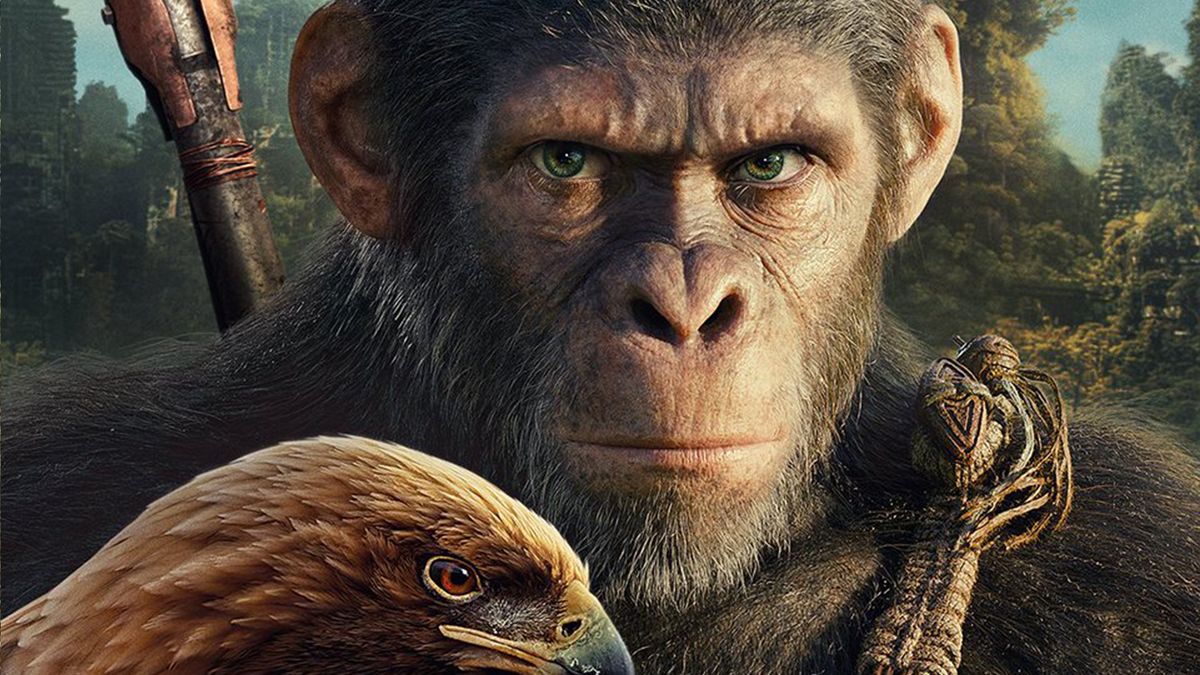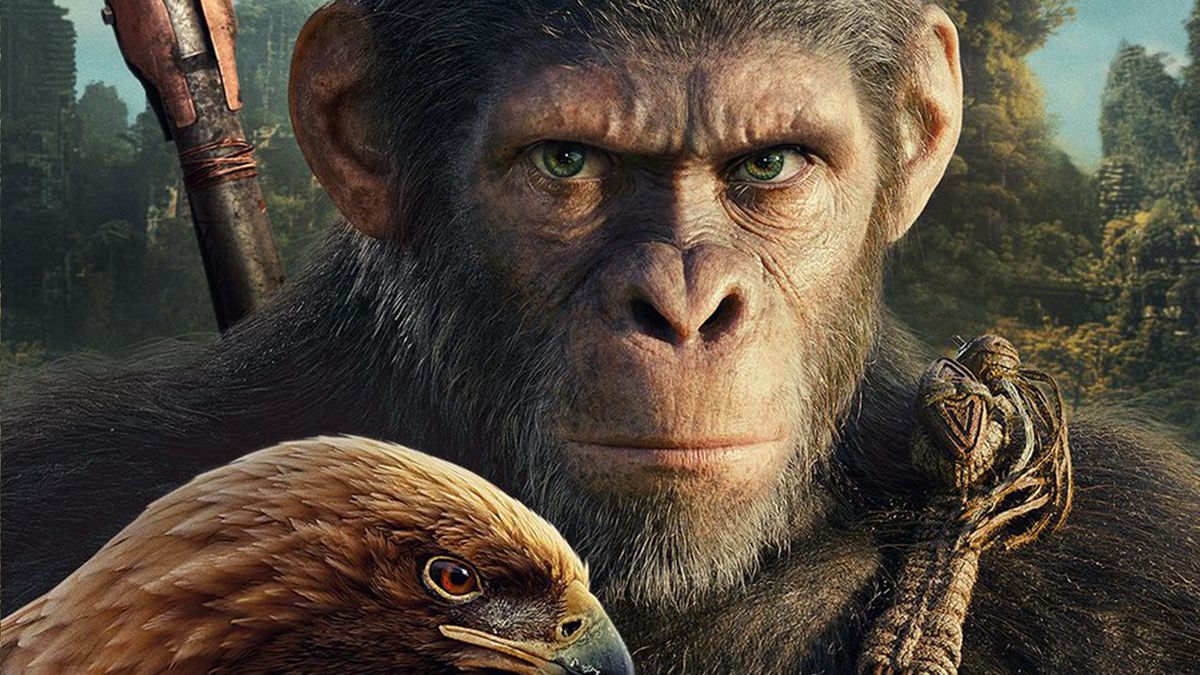
A new Planet of the Apes trailer has landed for the latest movie in the franchise: Kingdom of the Planet of the Apes. For those who struggle to keep up with all of the Planet of the Apes films so far, Kingdom of the Planet of the Apes is the fourth entry in the rebooted franchise and set 300 years after the events of the last movie, War for the Planet of the Apes. Although it’s the fourth movie, it signals the start of a new trilogy.
The trailer shows us a world in which apes already rule and humans are living in fear of them and being hunted by them. The story appears to center on Noa (Owen Teague), a chimpanzee who is beginning to question this dynamic and Mae (Freya Allan), a human he saves. Scenes play out in the trailer to the ominous voiceover from Proximus Caesar (Kevin Durand), a violent bonobo ruler who wants to rule over humans and apes.
The three previous Planet of the Apes movies in this rebooted franchise, including Rise of the Planet of the Apes (2011), Dawn of the Planet of the Apes (2014) and War for the Planet of the Apes (2017), were all excellent, so we have high hopes for Kingdom of the Planet of the Apes, and the other two movies that will follow it. The new movie will be arriving in movie theaters on May 10 in the US and May 24 in the UK.
How does Kingdom of the Planet of the Apes fit in the broader Ape-iverse?
Mild spoilers for the Planet of the Apes movies below.
Struggling to understand where Kingdom of the Planet of the Apes fits in the broader Planet of the Apes-iverse? You’re not alone.
Kingdom of the Planet of the Apes is the fourth entry in the rebooted franchise from 20th Century Fox, since acquired by Disney. It’s set 300 years after the events of the last movie in the franchise, which was called War for the Planet of the Apes.
How does this fit with the original movies from the 1960s and 1970s? Well, that’s tricky. All of the latest movies in the recent Planet of the Apes franchise are set before the original 1968 Planet of the Apes movie starring Charlton Heston. However, let’s not forget that these latest movies are, technically, a reboot.
Although all of the Planet of the Apes stories so far – including Tim Burton’s 2001 remake – could exist in the same universe, or Api-verse, it might be best to consider all of the major reimaginings of the Planet of the Apes story – which was originally a 1963 novel called La Planète des Singes by Pierre Boulle – as separate continuities.
This would give the new franchise more freedom to diverge from the “future” imagined in the 1960s storyline, changing smaller details or significant events. So it’s less about showing us what definitely happened before the original film and what may have happened.
You might also like
Services Marketplace – Listings, Bookings & Reviews
